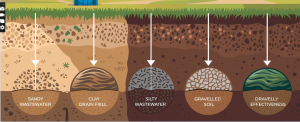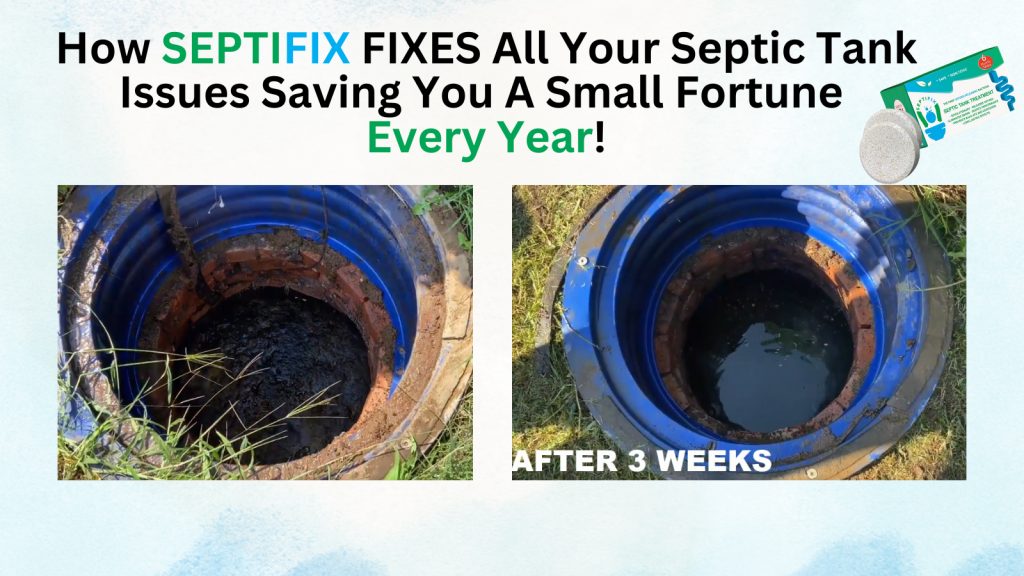Septic odors are an inevitable part of managing a septic system, but have you ever noticed how weather changes seem to affect the intensity of these smells? Understanding how weather impacts septic odors is essential for homeowners who want to maintain their system’s efficiency and comfort. This guide explores the effects of rain, humidity, and heat on septic system smells and offers tips for minimizing weather-related challenges.
Table of Content
- The Science Behind Septic Odors
- Weather Factors Affecting Septic Odors
- Seasonal Considerations for Septic Systems
- Proactive Steps to Minimize Weather-Related Odors
- The Importance of Proper Septic System Care
- Septifix
- Septic Permit Links by State
The Science Behind Septic Odors
Septic systems rely on bacteria to break down organic waste. This process naturally produces gases such as hydrogen sulfide, methane, and carbon dioxide, which can create strong odors if not properly managed. These gases are usually contained within the septic tank or released through venting systems. However, external factors, including how weather impacts septic odors, can alter how these odors escape or linger, making them more noticeable.
Weather Factors Affecting Septic Odors
Rain and Its Impact on Septic Smells
Rain has a significant impact on septic systems, especially in areas with heavy or frequent rainfall. When the ground becomes saturated with water, it reduces the soil’s ability to absorb effluent from the drain field. This can lead to:
- Odor Seepage: Excess water in the soil can force septic gases to escape to the surface, making smells more noticeable.
- System Backups: Heavy rains can overwhelm the system, causing waste to back up into the home and emit strong odors.
To minimize these issues, ensure that your drain field is properly graded to direct water away and consider installing drainage solutions to prevent flooding.
Humidity’s Role in Intensifying Odors
High humidity levels can trap septic odors closer to the ground, making them more noticeable. This occurs because moist air is denser, reducing the dispersion of gases. Additionally, humidity can:
- Enhance the smell of hydrogen sulfide, which has a distinct “rotten egg” odor.
- Promote the growth of anaerobic bacteria that release foul-smelling gases.
Proper venting systems and regular maintenance can help mitigate the effects of high humidity on septic odors.
Heat and Rising Smells in Summer
Summer heat can amplify septic odors for several reasons:
- Increased Bacterial Activity: Higher temperatures accelerate bacterial metabolism, leading to more gas production.
- Evaporation: Heat causes water in the drain field to evaporate faster, potentially leaving waste materials exposed and odorous.
- Concentration of Gases: Hot weather can cause gases to rise and linger around the property.
To combat heat-related odors, ensure your system is properly ventilated and schedule regular inspections to address any potential issues.
Seasonal Considerations for Septic Systems
The effects of weather on septic odors often vary by season. Understanding these seasonal patterns can help homeowners take proactive steps:
- Spring: Melting snow and spring rains can saturate the soil, increasing the risk of backups and odor seepage.
- Summer: High heat and humidity intensify odors, making regular maintenance crucial.
- Fall: Cooler temperatures often reduce bacterial activity, but heavy autumn rains can still pose challenges.
- Winter: Freezing conditions can impact the flow of gases and cause vent blockages, leading to trapped odors.
Each season requires specific strategies to maintain your system’s performance and minimize smells.
Proactive Steps to Minimize Weather-Related Odors
While weather can influence septic odors, homeowners can take several proactive measures to keep their systems running smoothly:
- Regular Maintenance: Schedule routine inspections to ensure your system is functioning properly and free of blockages.
- Install Venting Systems: Properly placed vents can help disperse gases more effectively, reducing odor buildup.
- Manage Drain Field Conditions: Avoid planting deep-rooted vegetation near the drain field and ensure the area remains well-drained.
- Limit Water Usage During Storms: Reduce water usage during heavy rains to prevent overloading the system.
- Use Bacteria Additives: Introduce beneficial bacteria to support waste breakdown and minimize odor production.
The Importance of Proper Septic System Care
Investing time and effort into proper septic system care can prevent many weather-related odor issues. By understanding how rain, humidity, and heat affect your system, you can take steps to minimize their impact and ensure your home remains odor-free.
Conclusion
Weather plays a significant role in the intensity and frequency of septic odors. Rain can saturate the soil and force odors to the surface, humidity traps smells closer to the ground, and heat amplifies bacterial activity, increasing gas production. Understanding these factors can help homeowners better manage their systems and reduce unpleasant smells. Need expert advice? Check out our septic maintenance tips and recommended products to keep your system running smoothly year-round.
Septifix










